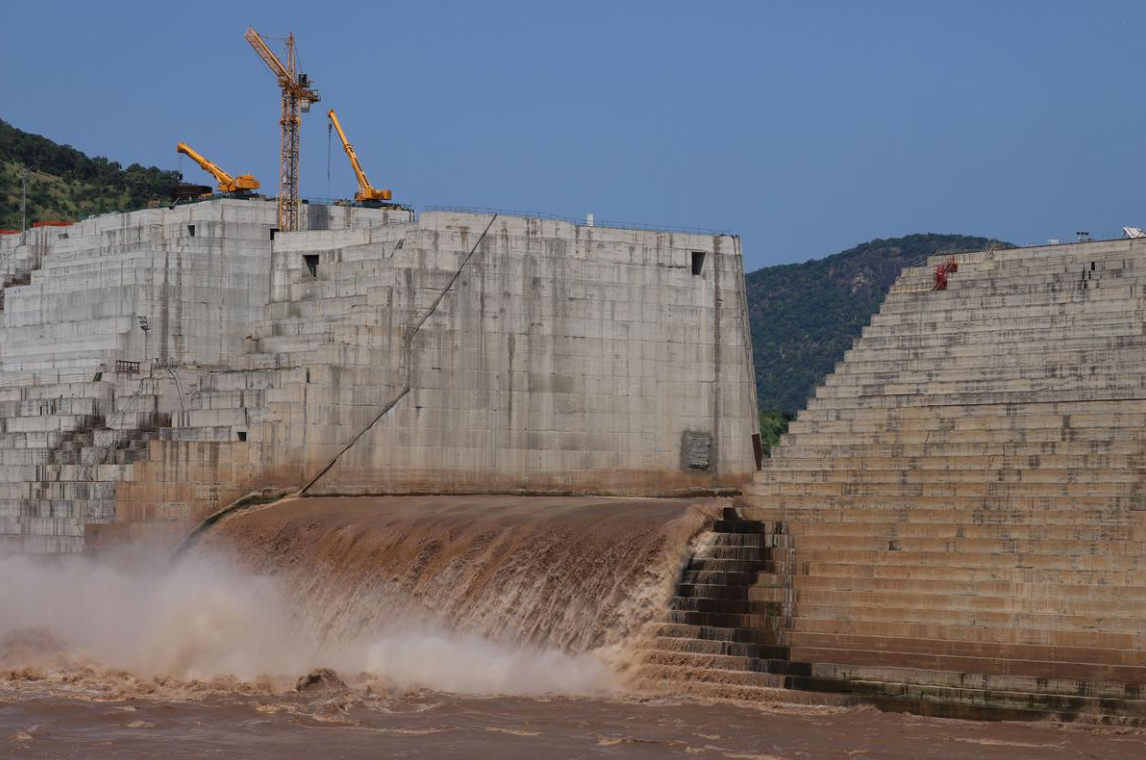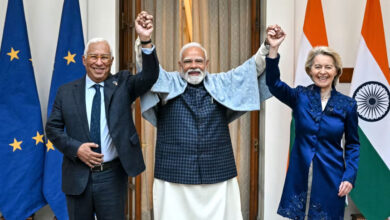
EU High Representative for Foreign Affairs and Security Policy Josep Borrell on Thursday welcomed the resumption of negotiations between Egypt, Sudan and Ethiopia regarding the Grand Ethiopian Renaissance Dam (GERD), and stressed the importance of reducing tensions between the three parties.
During his conversation with African Union Commissioner for Peace and Security Ismail Sharqi, Borrell emphasized the importance of seeking a solution that satisfies all three parties, and said that Brussels is ready to provide support.
Sudanese Minister of Irrigation and Water Resources Yasser Abbas held two separate meetings on Monday with his counterparts, Egyptian Minister Mohamed Abdel-Ati and Ethiopian Minister Seleshi Bekele, to discuss arrangements for the resumption of negotiations on the dam.
The Sudanese Ministry of Irrigation said in a statement that the two meetings were held via video conference and in the presence of members of the technical negotiation delegation from each of the three countries involved.
The ministry also said that the meetings occurred as a result of recent meetings held between Sudanese Prime Minister Abdalla Hamdok and his Egyptian and Ethiopian counterparts.
Following the meetings, all three countries’ water ministers were instructed to make arrangements for the resumption of negotiations on the GERD as soon as possible.
The Sudanese News Agency reported Hamdok as saying that Sudan is ready for continuous communication with the two countries to reach an agreement that guarantees full consensus between the three parties and takes into account their respective interests.
Commenting on the latest developments, Professor of Water Resources at the Africa Research Institute at Cairo University Abbas Sharaqi said that Ethiopia’s attempts to return to the negotiating table to resolve differences over the GERD are unpredictable.
Sharaqi stressed the need to complete the negotiations begun in Washington and to refuse to allow Ethiopia to close this path, something it had previously stipulated as a condition for its return to negotiations.
He added that Ethiopia aims to waste time, bifurcate the GERD issue and incite new problems between Egypt and the upstream countries that Ethiopia is encouraging to demand a share of the Nile’s water.
Negotiations were suspended in February after Ethiopia refused to sign a draft agreement prepared by the United States and the World Bank.
Sudan on May 12 rejected Ethiopia’s proposal to sign a partial agreement to start filling the reservoir of the dam in July.
Ethiopia has announced its plan to store 4.9 billion cubic meters of Nile waters in the reservoir of the dam in July, while Cairo insists on adhering to the Washington talks on filling and operating rules for GERD, as well as to the declaration of principles signed between the three countries in 2015.
Egypt’s Ministries of Foreign Affairs and Water Resources has rejected Ethiopia’s plan to fill the reservoir of the GERD before construction work is finished and regardless of whether an agreement has been reached with downstream countries.
Egypt relies considerably on fresh water from the Nile and has voiced concerns that the GERD would negatively impact the country’s water supply, especially in light of overpopulation fears, and has thus insisted throughout negotiations that measures be put in place to protect downstream countries in case of drought during the filling process at the dam.
___
Image: Water flows through Ethiopia’s Grand Renaissance Dam as it undergoes construction work on the river Nile in Guba Woreda, Benishangul Gumuz Region, Ethiopia September 26, 2019. (REUTERS/Tiksa Negeri/File Photo)




